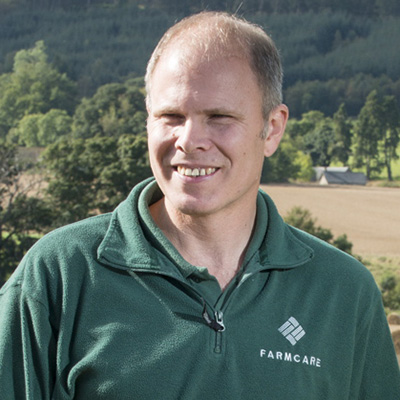Farmer Focus: Crops suffer in season drier than 2018

June has brought a welcome change in the weather, with a drop in temperature and some much-needed rain. Like most of the country we are exceptionally dry, with below-average rainfall in each of the past six months.
Early May was a bit unsettled, bringing enough rain to improve the colour of winter cereals, although tiller loss prior to this had already limited yield potential.
We are now significantly drier than in 2018 and I think that winter crops have probably suffered more from the dry conditions to date.
Spring barley, however, has fared better, being drilled early and kept going by the small amounts of rain that we have had. This week’s rain has come just in time to prevent the lighter areas burning off and hopefully maintaining what looks like a good yield potential.
See also: Virus-tolerant barleys could offer insecticide-free future
Disease levels have remained low as a result of the dry conditions and we have managed to get all sprays applied at the target growth stage, despite the sprayer spending many afternoons parked up due to wind. Hopefully, this low disease pressure will continue, especially for the spring barley which will no longer receive chlorothalonil to protect against ramularia.
Folpet will be applied in its place, but is not only more expensive and not as good, but comes in five litre packs, so takes longer to fill the sprayer!
It has been a strange period since the end of drilling. Usually there would be various meetings, shows, trials visits etc, but not this year due to Covid-19.
Online events have been useful in getting over important messages and keeping up Basis points, but are not quite the same.
Over the coming months the loss of shows and the opportunity to scrutinise trial plots, machinery etc will be greatly missed in planning cropping and investment for the coming years.
It has come to the time of year when I am preparing budgets and I don’t think that I can recall a year when there has been so much uncertainty over costs and prices in the coming months and years.
Weather, coronavirus, Brexit and US/China trade disputes – which will prove to have the biggest effect, and will it be positive or negative?
Robert Drysdale is farm manager at Farmcare’s 1,610ha business in Aberdeenshire, growing winter and spring barley, wheat and oilseed rape across four contract farming agreements to the south of Inverurie. The farm has 130 beef cows on land less suitable for crop production.

